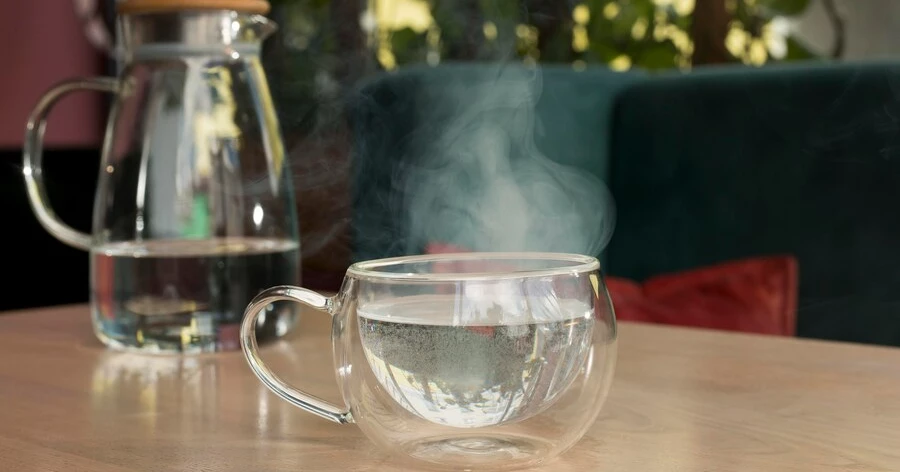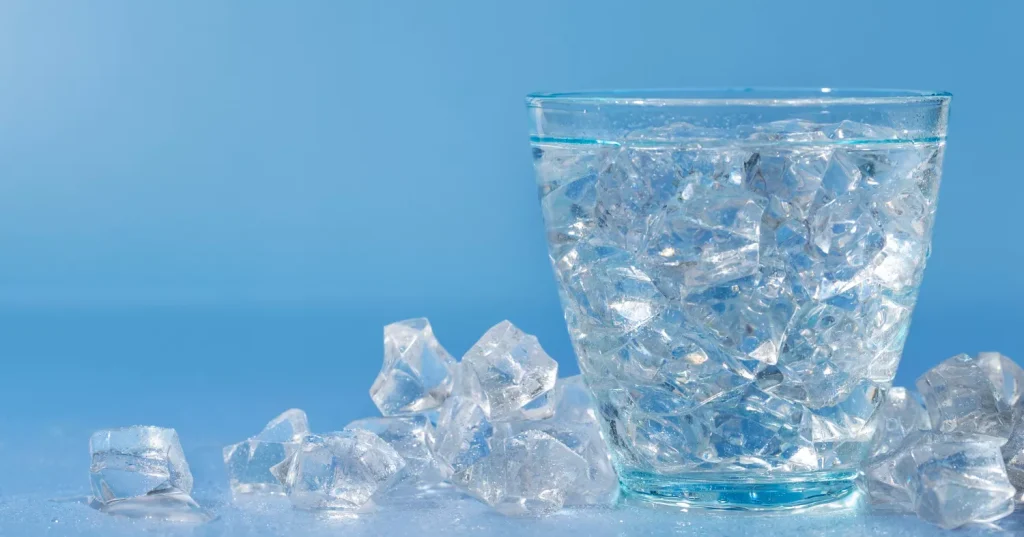Should You Drink Hot or Cold Water?
Should You Drink Hot or Cold Water?

The temperature of water you drink can affect your body in various ways, but there isn’t a definitive answer to whether it’s better to drink warm or cold water. It depends on your personal preferences, the situation, and your health.
Benefits of Drinking Warm Water
Helps Digestion
Warm water can help break down food in the stomach, making digestion easier. It stimulates the digestive enzymes, which can lead to smoother digestion. Drinking warm water before meals may help to prepare your stomach for digestion.
But you shouldn’t drink too much hot water. Because, regrettably, hot water can cause damage to the tongue, palate, and stomach tube. The long-term damage brought on by hot foods and drinks may also make people more susceptible to esophageal cancer.
Relieves Congestion
If you’re dealing with nasal or chest congestion, warm water can help loosen mucus, making it easier to expel. It can also soothe a sore throat and help clear out blockages, providing comfort when you’re feeling under the weather.
Improves Blood Circulation
Warm water can promote better blood circulation by expanding blood vessels, improving oxygen delivery to tissues, and helping to remove toxins from the body. This can enhance overall circulation, which benefits your heart health and overall well-being.
Helps Prevent Constipation
Drinking warm water may stimulate bowel movements and prevent constipation. It can help soften stool and make it easier to pass, promoting regularity.
Soothes Menstrual Cramps
For women experiencing menstrual cramps, warm water can provide comfort. It helps relax the abdominal muscles and ease cramping, providing relief during menstruation.
Improves Sleep Quality
Drinking a cup of warm water before bed can help you relax and prepare for sleep. It helps calm the nervous system and may promote better, deeper sleep.

Benefits of Drinking Cold Water
Quick Hydration
Cold water is absorbed faster by the body, making it more efficient for rehydration, especially after physical activity or sweating. This helps restore the body’s fluid balance more quickly, preventing dehydration.
Refreshing and Energizing
Cold water has an invigorating effect, making you feel more alert and awake. It can provide an instant energy boost, especially on hot days or after strenuous activities. The chill can help refresh and revive your senses.
The refreshing effect of cold water can lift your spirits, especially when you feel sluggish or fatigued. It can act as a pick-me-up, improving your mood and making you feel more refreshed.
Relaxes Body After Exercise
Drinking cold water during or after exercise can help lower your body temperature and prevent overheating. It can also help reduce feelings of fatigue, which improves endurance and performance during workouts or physical activities.
Cools Down the Body After Heat Exposure
If you’ve been out in the sun or a hot environment, drinking cold water can help bring your body temperature back to normal. It assists in cooling you down quickly, preventing overheating.
Cold water is particularly effective in preventing heat-related illnesses in hot weather. It helps regulate your core temperature, keeping you cool and reducing the risk of heat stroke or heat exhaustion. Thus, drinking cold water can enhance the endurance of your body during hot weather conditions.
Satisfies Thirst Faster
Cold water is often more satisfying when you’re extremely thirsty, as the cool sensation can quickly quench your thirst. The body tends to crave a refreshing temperature when it’s dehydrated, and cold water can feel more refreshing than room-temperature water.
Helps Relieve Some Symptoms
Cold water can help alleviate some symptoms of sickness. The cooling sensation may provide temporary relief from nausea, dehydration, and headache.
Cold water can help reduce inflammation and swelling. When you’re dealing with a mild injury, drinking cold water may provide some comfort.

Cold Water (Representational Image: Freepik)
Considerations
Digestive Health: Some people may find that drinking cold water slows down digestion, leading to discomfort.
Sensitivity to Temperature: If you have sensitive teeth, cold water might be uncomfortable. Cold water can cause tooth, gum, and throat pain.
Environment and Activity: The temperature of water can be affected by the climate or activity. For example, on a hot day, cold water will feel refreshing, while in colder climates, warm water might feel more soothing.
Conclusion
Ultimately, whether you should drink warm or cold water depends on your individual needs. If you want to boost digestion, relieve congestion, or relax, warm water may be your best option. If you’re looking for quick hydration, cooling down after exercise, or feeling more energised, cold water can be a good choice. It’s essential to listen to your body and drink what feels best for you at any given moment.


